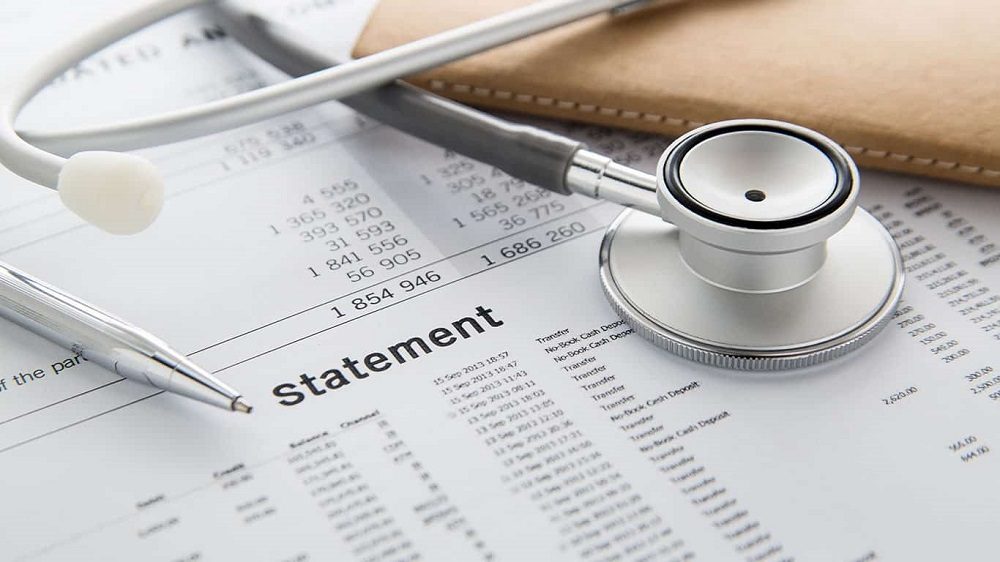
Strategies for Managing and Paying Your Medical Bills

Paying medical bills can be a significant financial burden for many individuals and families. With the rising cost of healthcare, even a routine medical procedure can quickly add up to thousands of dollars. Now, let’s explore some strategies that can help you manage and pay your medical bills.

Steve Bucci/ IN | Health insurance helps ensure access to healthcare
Understand Your Medical Bills
The first step in paying medical bills is to understand what you are being charged for. Medical bills can be confusing, with multiple line items and codes that can be difficult to decipher. Take the time to review your bills carefully and make sure you understand each charge.
If you have any questions or concerns about your bill, don’t hesitate to contact your healthcare provider’s billing department. They may be able to explain the charges or help you identify errors or discrepancies.
Negotiate Payment Options
If you cannot fully pay your medical bills, talk to your healthcare provider about payment options. Many providers are willing to work with patients to set up payment plans or offer discounts for paying in cash or upfront.
It’s important to be upfront and honest about your financial situation. Your healthcare provider may be able to offer more flexible payment options if they understand your financial constraints.

PhotoAlto/ Frederic Cirou/ Getty Images | The average American household spends nearly $5,000 on healthcare costs each year
Look for Financial Assistance Programs
Many healthcare providers offer financial assistance programs for patients who cannot pay their bills. These programs may be based on income or other criteria and can provide significant discounts or even free care in some cases.
If you face significant medical bills, it’s worth exploring these programs to determine eligibility. Your healthcare provider’s billing department should be able to provide information on available programs.
Use Health Savings Accounts or Flexible Spending Accounts
A health savings account (HSA) or a flexible spending account (FSA) can be a valuable tool for paying medical bills. These accounts allow you to set aside pre-tax dollars for eligible healthcare expenses.
An HSA or FSA can help you save money on medical bills by reducing your taxable income and out-of-pocket costs. Check with your employer or healthcare provider to determine eligibility for these accounts.

Imed Bouchrika/ Getty Images | Often, medical bills arise from an unexpected health crisis
Seek Legal Help
If you are facing significant medical bills you cannot pay, you may want to seek legal help. There are a variety of legal resources available that can help you navigate the complex world of medical billing and debt.
Organizations such as Legal Aid or the National Consumer Law Center may be able to provide legal advice or representation for individuals facing medical debt. They can help you negotiate payment plans, dispute billing errors, and even file for bankruptcy if necessary.
Consider Medical Debt Consolidation
If you have multiple medical bills from different providers, consolidating your debt into a single payment can make it easier to manage and pay off. There are a variety of medical debt consolidation programs and services available that can help you consolidate your bills and reduce your overall payments.
When considering medical debt consolidation, research different providers and compare rates and fees. Look for a provider that offers transparent pricing and a clear repayment plan.
More in Life Hacks
-
`
How to Make Good Habits Stick For Long? 5 Practical Tips
Good habits can change your life, but keeping them alive is the real challenge. Many people start strong and then slowly...
August 3, 2025 -
`
How A Family Crisis Pushed Brad Pitt to Quit Drinking
Brad Pitt hit a wall in 2016. The actor, known for his cool demeanor and A-list charm, found himself in the...
July 27, 2025 -
`
This New York-Based Startup Has Cool Ways of Quitting Cigarettes, Vaping & Zyn
Quitting cigarettes, vaping, and Zyn has always felt clinical, awkward, and kind of lame. But Jones, a New York-based startup, is...
July 18, 2025 -
`
Inside Gwen Stefani’s Life With Her “Greatest Love” Blake Shelton
Gwen Stefani kicked off Blake Shelton’s 49th birthday in the most personal way possible. On June 18, 2025, she shared a...
July 11, 2025 -
`
What Is the Science Behind Out-of-Body Experiences (OBEs)?
Out-of-body experiences, or OBEs, sound like science fiction. But they are real, at least to those who experience them. OBEs involve...
July 5, 2025 -
`
Why Will Smith Regrets Rejecting a Starring Role in “Inception”
Will Smith once passed on a role that would go on to define sci-fi cinema. In a rare moment of honesty,...
June 29, 2025 -
`
5 Things Millionaires Are Doing With Their Money in 2025
Money doesn’t sit still when you are rich. Millionaires don’t hoard it, they grow it. Every dollar has a job to...
June 21, 2025 -
`
‘Living Room Kid’ vs. ‘Bedroom Kid’: The Difference & Parenting Tips
Parenting means learning the little clues that show how your child feels. One major clue? Where your kid spends most of...
June 13, 2025 -
`
5 Ways Morning Meditation Can Boost Your Mental Health
Morning meditation is backed by science and proven to make your brain and body feel better. Right after you wake up,...
June 8, 2025















You must be logged in to post a comment Login